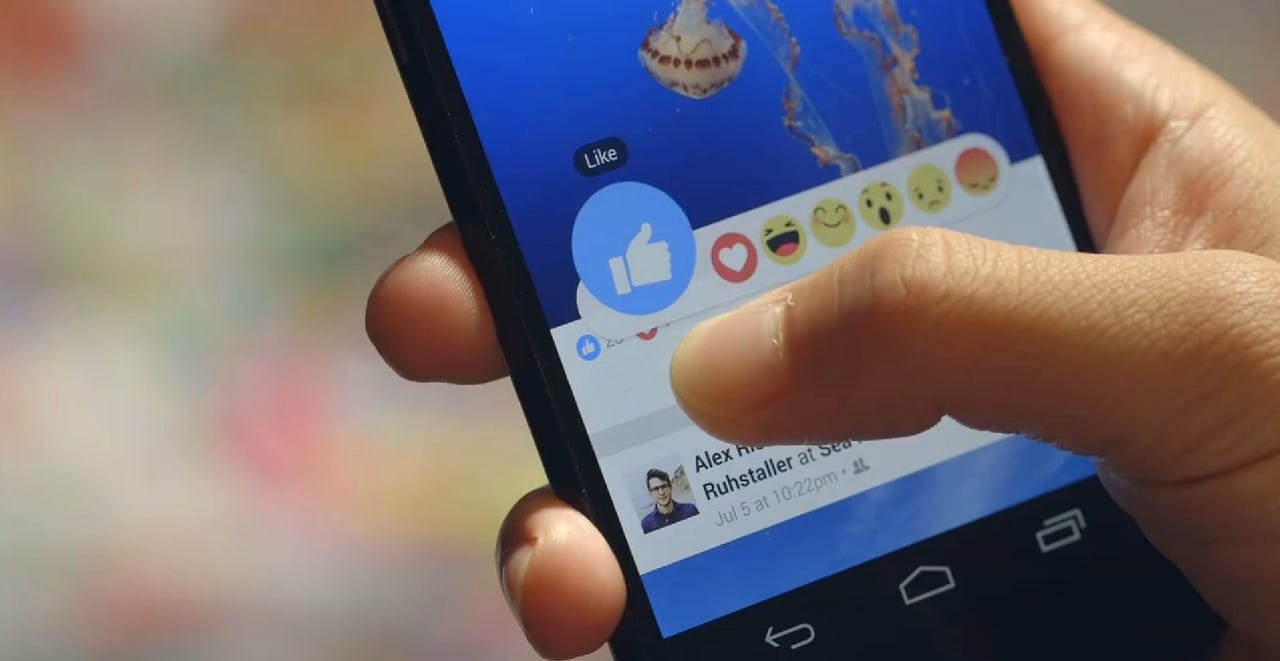Facebook's Reactions effort tweaks Like button, may yield data bonanza


Facebook will tinker with its "like" button and roll out an extension called Reactions that will provide more nuance via six different emotions to display.
According to Bloomberg Business Week, Facebook product chief Chris Cox led an effort to revamp the like button. The like button, a blunt tool that frankly annoys the hell out of me, is a critical Facebook feature that determines what you see in the News Feed.
In other words, Facebook could have a new Coke moment as it changes a tried-and-true formula. But Cox has a point that the like button doesn't always work well. Should you like a post about someone's heart attack? How about that earthquake? Then there's the pressure to like something just because the other social sheep are clicking that icon too.
That like button herd mentality could use a tune-up for sure. But the real win is that should this Reactions feature work well, Facebook will have more insight to what is popular and what drives usage (beyond having more subsets to click). Reactions sounds like a better way to analyze sentiment.
Facebook will also have more data to gauge its users' mood, real thoughts about content and ultimately be able to model behavior and ads. Facebook, like Google, knows a lot about you. Facebook knows your social graph and network well. With more granular options (assuming Facebook can still keep the interface simple), the social network will be able to better gauge emotion.
Bloomberg described the like button mojo this way:
It's a way of creating a connection, even if it's superficial. If users click like on a post about the Red Cross's disaster relief efforts, they feel as if they've done something to help. (In January, Sandberg went so far as to suggest that likes could help defeat Islamic State: By posting positive messages on the terror group's Facebook pages, users could somehow drown out the hate.) Liking someone's photo is an awkwardness-free way to make contact with someone you haven't seen in years. Alternatives to like will let Facebook users be a little more thoughtful, or at least seem to be, without having to try very hard.
Meanwhile, Cox's team consulted with sociologists on the range of emotions.
You see where this could be headed. Simply put, Reactions could yield a data bonanza and more granular information even its anonymized across Facebook's user base. Ultimately, that data can yield better ad results.